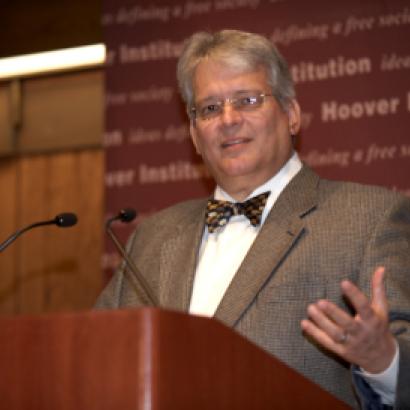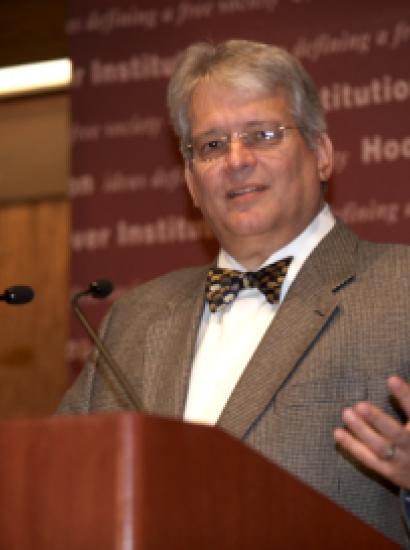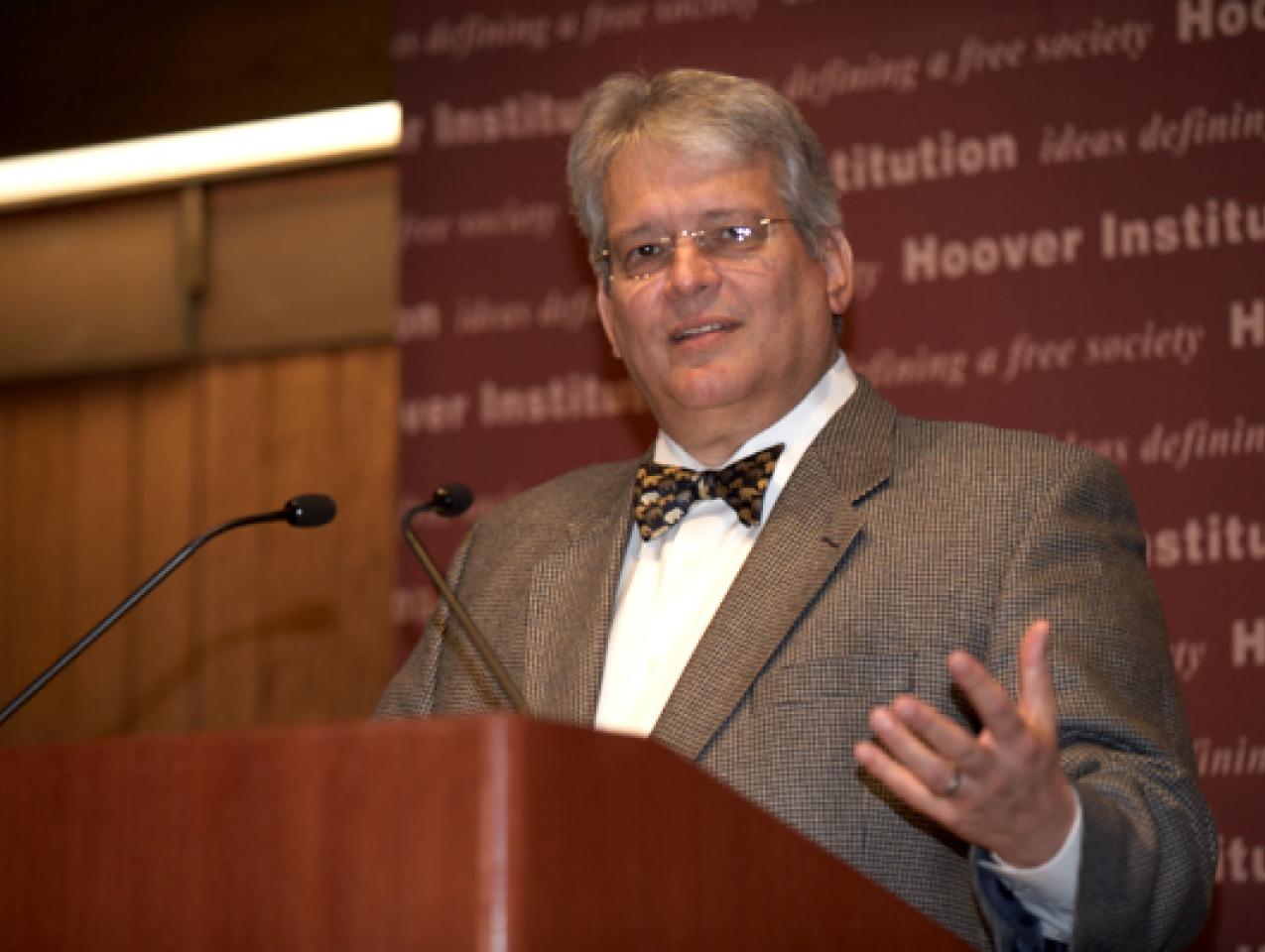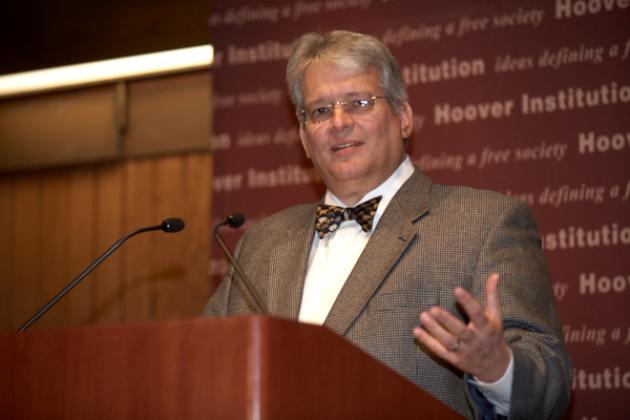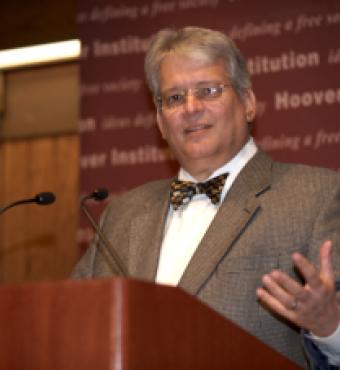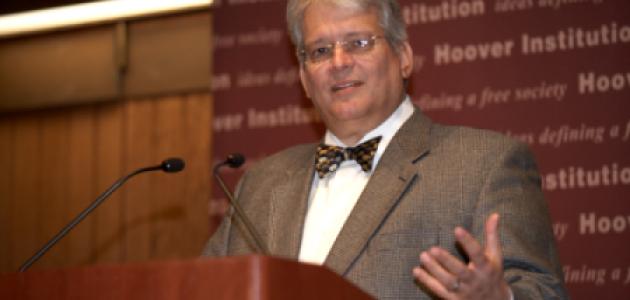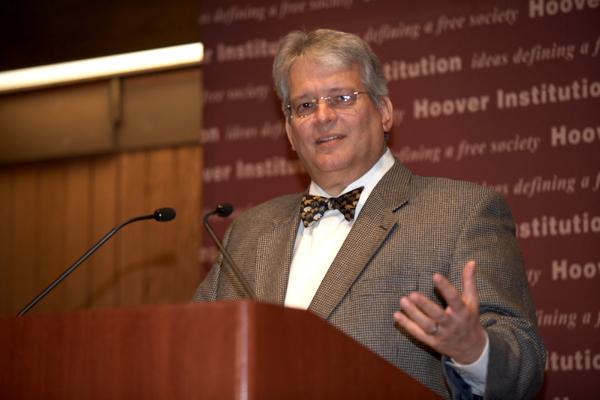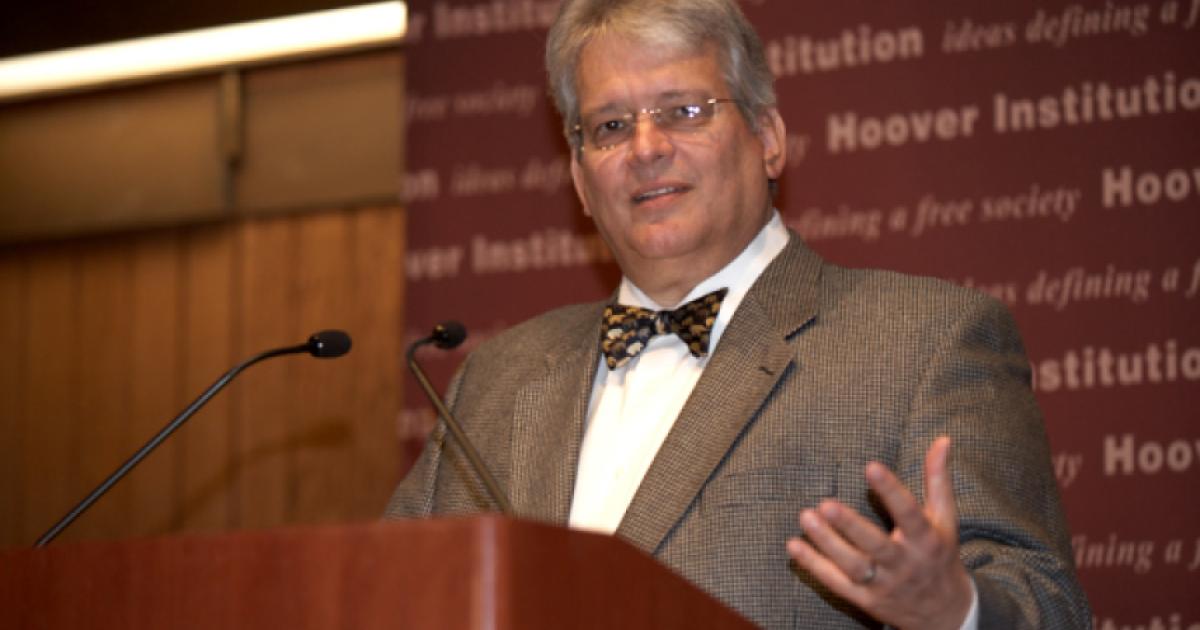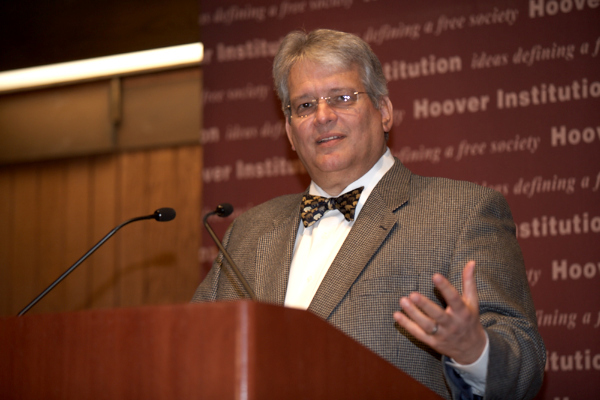
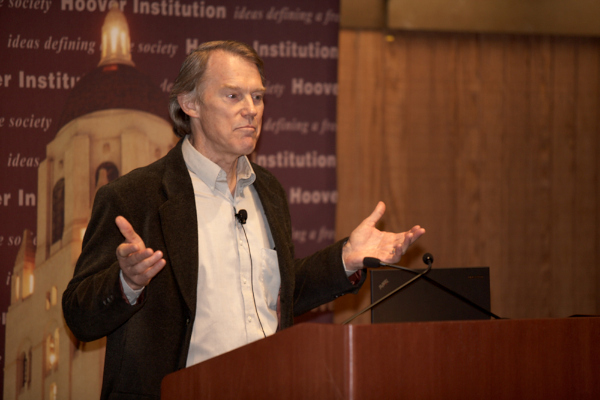
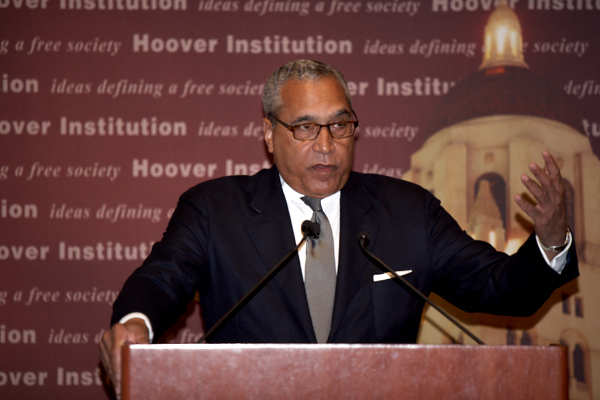

The Hoover Institution hosted its annual November Retreat beginning on Wednesday, November 16, 2011, and ending on Thursday, November 17, 2011. The before-dinner remarks on Wednesday were given by Daniel Henninger, deputy editor of the Wall Street Journal’s editorial page. His column, “Wonder Land,” appears in the Wall Street Journal on Thursdays. In his speech, titled “If America Stops,” Henninger discusses the source of conflict in public policy and the GOP presidential candidates. “By America stops, I mean that America becomes politically incapable of being the lead force in the world that it has been for the past sixty years. By America stops, I mean that the American idea loses its force and presence in the world,” Henninger stated.
John Raisian, the Tad and Dianne Taube Director, gave welcoming remarks in which he discussed social media outlets, including Facebook, Twitter, iTunes, YouTube, and Kindle; the working groups and task forces and their current progress; and immigration policy.
Russell Roberts, a research fellow at the Hoover Institution, gave a talk titled “The Paradox of Class Warfare: Inequality and the 2012 Presidential Election,” in which he discussed the current situation of Occupy Wall Street. He gave two reasons for the amount of change in income: purchasing power and the top 1 percent of the population not always including the same people. “The richest people today make more than the richest people yesterday,” Roberts stated. He also discussed how banks use fixed amounts when lending to other banks. “The lenders in our economy are the watchdogs of irresponsibility,” Roberts explains.
Terry Moe, a senior fellow at the Hoover Institution, a member of the Institution's Koret Task Force on K–12 education, and the William Bennett Munro Professor of Political Science at Stanford University, talked about public sector unions in his speech titled “The Power of Public Sector Unions.” Moe highlighted his concerns with public sector unions, explaining how the cost of government, the way government is organized, and our politics relate to public sector unions. He also talked about collective bargaining, democracy, and pensions. “Collective bargaining is the foundation of union power,” Moe stated.
Keith Hennessey, a research fellow at the Hoover Institution and a lecturer at the Stanford Graduate School of Business, discussed topics including the stimulus and deficits in his talk titled “What Will Washington Do This Fall on Stimulus and Deficits?” Hennessey talked about the Super Committee, which is made up of twelve members of the House and Senate, and explained its goal of reaching a $1.2 to $1.5 trillion deficit reduction over the next ten years by next week. He also discussed entitlement spending, long-term budget paths, and the unlikelihood of the Super Committee reaching its goal due to the “back and forth” between Republicans and Democrats.
Shelby Steele, the Robert J. and Marion E. Oster Senior Fellow at the Hoover Institution, gave a talk titled “The Middle East and the Double Bind of American Exceptionalism.” Steele described what he called a “conflict of narratives” to explain the situation in the Middle East. “There are different narratives to try to explain what is happening in that part of the world and what means what,” Steele stated. He discussed the idea of a “poetic truth” in which “you take a real license with the truth because you’re after something else. You’re after an effect, to make an impression in the world, so you bend the truth.” Steele went on to talk about how “our involvement in the Middle East is an outgrowth of our exceptionalism as a country and society.” He explained how the United States is involved with the Middle East because it is the “world’s great military and economic power” as well as cultural influence.
The afternoon sessions included speeches by Morris Fiorina and Scott Atlas.
Morris Fiorina, senior fellow at the Hoover Institution and the Wendt Family Professor of Political Science at Stanford University, talked about the upcoming election in his speech titled “The Road to the 2012 Elections.” Fiorina gave a road map that points out where the United States has come from politically in the years from 2008 to 2011 and where the country is headed. He discussed the breakdown of the House and Senate seats, the impact of the Tea Party, and the prominent issues facing the country today, such as the economy and the federal budget deficit.
Scott Atlas, a senior fellow at the Hoover Institution and a professor of radiology and chief of neuroradiology at the Stanford University Medical Center, discussed health care reform as set out in his book titled Health Care Reform: Setting the Record Straight on America’s Health Care. Atlas talked about the increasing costs of health care, with the United States being the highest in comparison to other countries around the world. He explained how factors other than the quality of health care affect life expectancy, including obesity and nutrition. As Atlas, explained: “three key elements of health care reform . . . focus on costs and maintaining excellence. The elements include reforming private health insurance markets, introducing substantive tax reforms, and reducing government’s role as direct insurer.”







